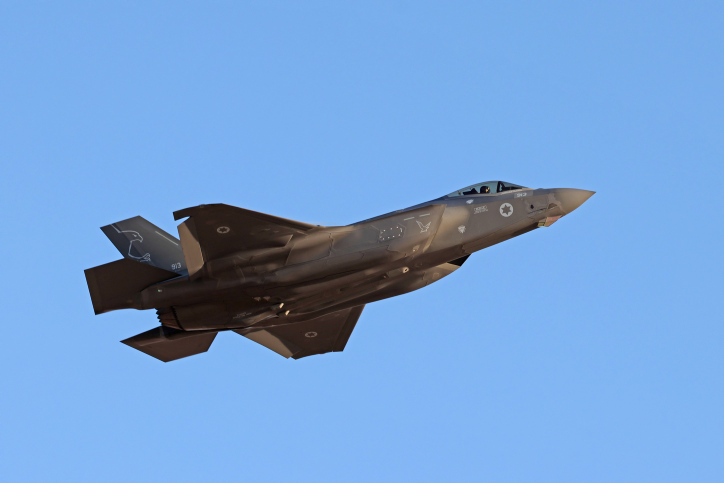



As calls grow among critics of Israel around the world to limit arms sales to the Jewish state over the ongoing war against Hamas in the Gaza Strip, data released in recent days shows nearly all of Israel’s weapons imports are from companies in the United States and Germany.
According to a 2023 report by the Stockholm International Peace Research Institute, which studies conflicts and arms, 69 percent of Israel’s arms purchases come from US firms, 30% from Germany and 0.9% from Italy.
“These figures express the major arms deals of recent years, the purchase of F-35 aircraft from the USA and the purchase of submarines from Germany. The rest of the weapons were purchased elsewhere in much smaller deals,” a statement from SIPRI read.
While it is a much smaller portion of the total imports, other countries, such as the United Kingdom, Canada and the Netherlands, provide Israel with critical components for aircraft. Israel also imports other materials used for military purposes from various other nations.
Last week, Canadian Foreign Affairs Minister Mélanie Joly announced Ottawa had stopped arms exports to Israel over the military offensive in the Gaza Strip aimed at eliminating Hamas, following the terror group’s October 7 massacre. The war has sparked a severe humanitarian crisis in Gaza, with aid agencies warning of an imminent famine in the Strip without a continuous flow of aid.
US officials told Politico earlier in the month that President Joe Biden would consider placing conditions on future military aid to Israel if it moves ahead with its planned offensive against Gaza’s southernmost city of Rafah, where over a million Palestinians are sheltering. In an interview Sunday, US Vice President Kamala Harris did not rule out consequences for Israel if it moves forward with the offensive.
Israel has said it cannot achieve victory in the war without tackling remaining Hamas battalions in Rafah, while the global community is intensely concerned of massive harm to civilians sheltering in the city. Jerusalem has said it is preparing a plan to evacuate them.
Progressives in Washington, including US Senator Bernie Sanders, have called for a halt to exports to Israel, and European Union Foreign Policy Chief Josep Borrell has called on countries to stop sending arms.
Italy announced in January that it had halted exports at the start of the war, and a Dutch court ruled last month that The Netherlands must stop delivering US-owned parts for F-35 fighter jets to Israel.
SIPRI’s study ranked Israel as the world’s 15th top weapons importer, taking up 2.1% of all imports, according to globally available data from 2019-2023. It also said that Israel was the world’s 9th top weapons exporter, making up 2.4% of exports.
The institute noted that not all information on weapons trading is transparent, particularly on the Israeli side, and therefore some information on purchases and sales may be missing in the report.
The study found that Israel and Germany’s dependence is fairly mutual, with Berlin importing 16% of its arms from the Jewish state — its second biggest supplier. SIPRI highlighted Germany’s purchase of the Arrow 3 long-range air defense system last year as an expression of this relationship. Meanwhile, Israel is Germany’s third-largest destination for its military exports, receiving 12% of exports — behind Ukraine (12%) and Egypt (20%).
Israel is the destination for only 3.6% of US exports, coming in behind Kuwait (4.5%), Qatar (8.2%), Japan (9.5%) and Saudi Arabia (15%), SIPRI said.
Israel’s top customer for military supplies is India, which takes a share of 37% of Israeli exports, followed by the Philippines (12%) and the US (8.7%), according to the research.
SIPRI, a think tank founded in 1966, provides data, analysis and recommendations on matters relating to global security.
Times of Israel staff contributed to this report.

